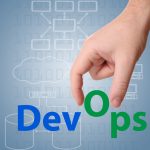MariaDB launches Oracle compatible enterprise open source database

Enterprise computing has often been reliant on proprietary database architecture, but this can be both complex and costly, putting up a barrier to innovation.
Now open source database specialist MariaDB is launching its latest enterprise offering with Oracle compatibility. This allows existing Oracle Database users to reuse existing code and established skill sets when migrating applications or deploying new ones.
Google launches Android Jetpack to speed up app development

Google has a new tool designed to help developers produce Android apps faster than ever. Called Android Jetpack, it builds on the Support Library and has a strong focus on backwards compatibility.
Android Jetpack also builds on Architecture Components, giving developers access to components, tools and architectural guidance split into four categories -- architecture, foundation, UI and behavior. Each component is provided as an "unbundled" library which Google says means you can "adopt each component at your own speed, at your own time".
Cohesity simplifies the creation of cloud development environments

Secondary storage specialist Cohesity is launching new capabilities that allow organizations to leverage the public cloud for faster application testing and development, while still ensuring seamless backup and recovery.
A growing number of enterprises are moving application testing and development onto public cloud infrastructure, taking advantage of its agility and elasticity to speed time to market. Using Cohesity CloudSpin, users can instantly convert backup data stored on Cohesity DataPlatform into a new virtual machine for testing or development in the cloud.
Breakthrough in AI cuts battery drain of mobile voice UIs

We've become increasingly used to technology that uses 'wake words' like, "Hey, Cortana" to initiate interaction.
But this technology has, so far, failed to make a big impact in the mobile apps arena, the main reason being the battery drain created by having an app that's constantly listening. That could be about to change as Silicon Valley company Sensory is announcing a breakthrough in running its TrulyHandsfree wake word and speech recognition AI engine directly on Android and iOS smartphone applications at low-power.
Linux 4.16 launches

Just over a week ago, Linus Torvalds said that the release of Linux 4.16 could take place on Sunday April 1. Ignoring the fact that April Fool's day is a terrible day to do just about anything, he made good on his promise.
As predicted, there was no RC8 of the kernel, and Torvalds notes that the final release is very similar to RC7. In a post to the Linux Kernel Mailing List, he also said that the merge window for 4.17 is open, but for now, the focus is on 4.16.
DevOps survey highlights complexity and culture worries

Top barriers to DevOps adoption include stagnant organizational cultures and managing a jumble of legacy processes.
A new survey of DevOps and IT professionals from sandbox software company Quali finds 22 percent of respondents cite organizational culture, 21 percent legacy processes, and 20 percent growing software complexity as their top concerns.
Carbon Black improves integration with open APIs

Security teams are faced with an increasing range of problems, from the volume of attacks, to lack of visibility into networks and shortage of skills.
Endpoint security specialist Carbon Black is launching its own Carbon Black Integration Network (CbIN), a technology partner program designed to improve cybersecurity through collective defense.
New developer tool aids deployment of AI applications

There's increasing demand for AI and machine learning solutions from businesses, but often a shortage of skills is holding back implementation.
Cloud computing specialist Paperspace is launching a new tool called Gradient to allow developers to tap into a dedicated cloud of AI solutions for building, training and deploying machine learning applications.
Chrome for Windows drops Microsoft compiler in favor of Clang

The Windows version of Google Chrome is ditching Microsoft's C++ Compiler and switching to Clang. The change brings Chrome for Windows in line with versions of the browser for macOS, Android and Linux.
The move not only makes complete sense for Google -- why not use the same compiler on all platforms, after all? -- it makes Chrome the first high-profile Windows app to make use of the open source compiler Clang.
HVR solution streamlines enterprise data integration

Companies operate in an increasingly complex data environment, where information can exist across multiple systems and locations. This can mean the movement of data between a variety of sources and targets, such as data lakes and cloud-based infrastructures, without impacting daily business operations.
Data integration specialist HVR is addressing this need by launching a distributed architecture to provide easy management and control of data movement.
Ericsson launches marketplace to unlock the cellular IoT ecosystem

The IoT marketplace has grown, and is continuing to grow, at a rapid rate and this means developers and service providers have often struggled when it comes to collaboration with other networks and devices.
Communication services company Ericsson is using MWC 2018 to launch a new IoT Accelerator Marketplace aimed at making it easier for service providers to find IoT apps from the global ecosystem.
Shippable opens up OS support for DevOps teams

Most CI and DevOps vendors are focused on Linux-based applications, which means supporting Windows or iOS requires multiple platforms, or managing their own instances of Jenkins. This can lead to an inefficient, expensive and inconsistent experience.
Automation platform Shippable is addressing this issue with the launch of support for applications built on Mac OS X, iOS, and Windows, plus new analytics tools.
New API sheds light on the dark web
Avast makes 'RetDec' machine-code decompiler open source on GitHub

Open source is the future of computing. Don't believe me? Three of the most important technology companies -- Microsoft, Apple, and Google -- not only license open source software, but they contribute to open source projects too. While closed source will likely never go away, it is becoming less important.
Today, popular anti-virus and security company, Avast, announces that it too is contributing to the open source community. You see, it is releasing the code for its machine-code decompiler on GitHub. Called "RetDec," the decompiler had been under development since 2011, originally by AVG -- a company Avast bought in 2016.
Low code platforms lead to a rise in 'citizen developers'

The introduction of low code platforms has led to more and more applications being developed outside of the IT department.
A new report from development platform company Kintone reveals that one in five executives say more than 50 percent of their applications were developed outside their IT department.
Recent Headlines
Most Commented Stories
BetaNews, your source for breaking tech news, reviews, and in-depth reporting since 1998.
© 1998-2025 BetaNews, Inc. All Rights Reserved. About Us - Privacy Policy - Cookie Policy - Sitemap.
